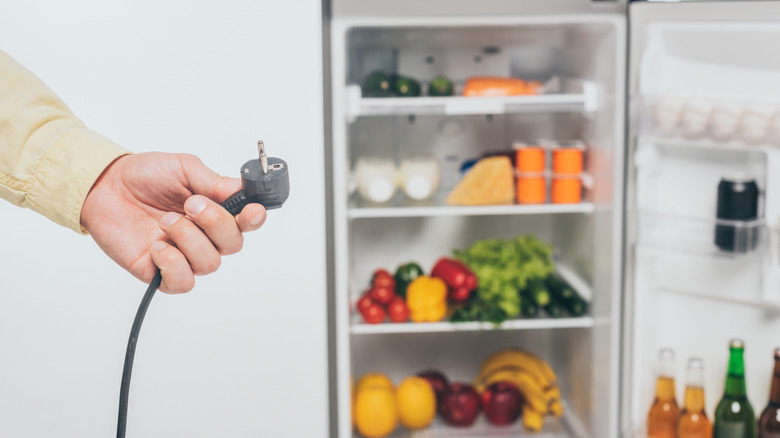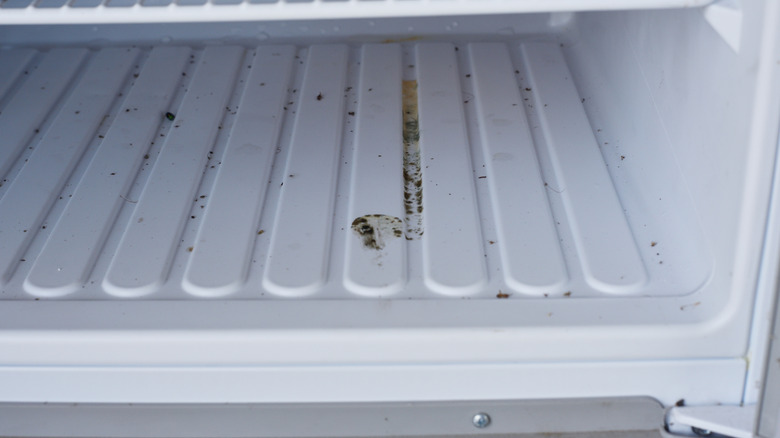Why Leaving An Unplugged Fridge Closed Is A Huge Mistake
When you're leaving home for an extended period of time, you'll likely look for ways you can reduce your energy costs. Some people turn of their fridges to help save money, especially if there is not a need for keeping food items cold when no one is home. Before you unplug your fridge, though, it's important that you do not leave the door closed. This common mistake can lead to unhealthy mold and mildew growth, and could even ruin the inside of your fridge.
The inside of a refrigerator is a moist environment. Even if the appliance is turned off and left unplugged, any residual moisture will remain. When the appliance is not running and is completely enclosed, there is nowhere for this moisture to escape. Thus, in order keep mold out of your fridge when it is unplugged, it's necessary to keep the door open. For an additional safeguard against mold, mildew, and unpleasant smells, you can also place a box of opened baking soda inside your opened fridge to help absorb any residual moisture.
When you should unplug your fridge, and how to do so safely
While an unplugged fridge can get moldy quickly when you leave the door closed, there are still times when unplugging this appliance is warranted. This is especially true when you will not be in your home for a month or longer. If you choose this route, you will first need to empty the fridge entirely and turn off the ice maker and the water supply. Turn off the circuit breaker before unplugging the appliance. Wipe down the inside with a damp cloth to help to deep clean your fridge. Make sure you dry all surfaces and that you leave the door open until the fridge is ready to be plugged in and used again. Once you've returned home and plugged your fridge back in, allow the appliance to run for 24 hours before using it.
If you're going to be gone for less than a month, you do not need to unplug your fridge. This can cause more damage than its worth. There are still steps you need to take to get your fridge prepared, though. Aside from leaving the fridge plugged in and running, you should still remove all perishable foods. To help keep both the refrigerator and freezer compartments running efficiently, consider adding in a gallon of water and a bag of ice, respectively. You should also turn off both the unit's ice maker and water supply while you're away. Finally, be sure to keep your home's thermostat running if you have an HVAC system. Temperatures that drop below 60 degrees Fahrenheit may reduce the efficiency of your appliance.

